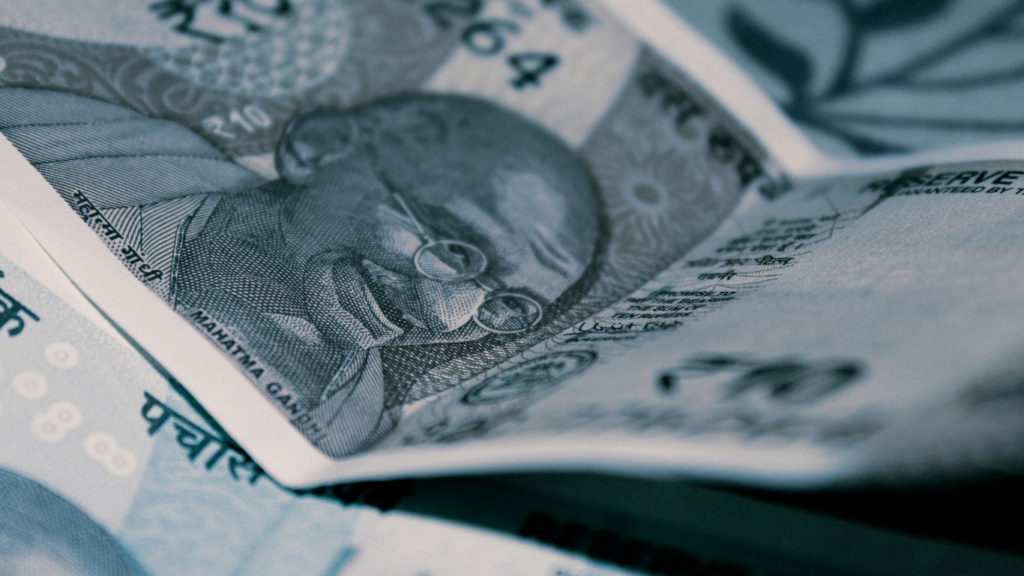India’s markets are lively and diverse, with traders from all communities working hard to earn a living. But recently, there’s growing concern about what some call “economic jihad” by Muslims, a term used to describe aggressive tactics that seem to target Hindu traders and push them out of business. This isn’t just about competition—it’s about practices that feel unfair, like price wars, boycotts, and organized efforts to control markets. Hindu traders, who’ve been part of these markets for generations, say they’re struggling to survive. This article looks into these claims, the impact on Hindu traders, and why this trend is dangerous for India’s economy and harmony. Let’s explore what’s happening and what can be done to ensure markets stay fair for everyone.
Understanding Economic Jihad
The term “economic jihad” has been floating around, especially among Hindu trader groups, to describe what they see as a deliberate plan by some Muslim traders to dominate India’s markets. It’s a strong phrase, often used by right-wing groups, suggesting that Muslim traders are working together to weaken Hindu businesses. This includes tactics like undercutting prices, controlling supply chains, and using community networks to gain an edge. In cities like Delhi and Bangalore, Muslim traders have a strong presence in retail, with some estimates saying they make up nearly 46% of urban self-employed traders, according to a 2013 study.
Hindu traders feel this isn’t just fair competition but a targeted effort to squeeze them out. While the term “jihad” is controversial and can fuel division, it reflects the frustration of those who believe they’re being unfairly pushed out of markets they’ve long served. Let’s look deeper into how this is happening.
Tactics of Market Control
Muslim traders often use community networks to their advantage. In places like Mumbai’s Crawford Market, they reportedly work together to control wholesale supplies, getting better prices and quality goods. This leaves Hindu traders with higher costs or leftovers, making it hard to compete. Some call this smart business, but others see it as a way to dominate markets and exclude non-Muslims, especially Hindus.
The Role of Community Support
Community support plays a big role. Muslim traders often buy from each other, creating a closed loop that strengthens their businesses but sidelines others. In Kerala, for example, Muslim vendors support their own shops, even encouraging boycotts of Hindu traders. This kind of loyalty can feel like a wall that Hindu traders can’t break through, leaving them isolated.
How Hindu Traders Are Affected
Hindu traders are feeling the heat in a big way. Many who’ve run shops for years are losing customers and struggling to keep up. In markets like Uttar Pradesh and Karnataka, they report losing sales as Muslim traders offer lower prices or control key supplies. Small Hindu vendors, who don’t have the same community backing, find it hard to match these prices without losing money. The term “economic jihad” comes up here, as they feel this isn’t just competition but a planned effort to push them out.
The impact goes beyond money. Hindu traders feel targeted and helpless, which creates anger and fear. In places like Delhi’s Sadar Bazar, they say they’re being edged out of prime spots, forcing them to either shut down or move to less busy areas where sales are low. This is a big blow to their livelihoods.
Loss of Market Share
Hindu traders are losing their grip on markets they once dominated. In Bangalore, for example, Muslim traders have taken over much of the fruit and vegetable trade, leaving Hindu vendors with fewer customers. Sales for Hindu traders have dropped by 20-30% in some areas, as they struggle to compete with lower prices and better supplies.
Emotional Strain
The emotional toll is heavy. Hindu traders feel betrayed in markets they’ve served for generations. The fear of being pushed out by what they see as “economic jihad” creates resentment. In Palampur in 2024, Hindu traders spoke of feeling helpless after vandalism incidents, believing they were targeted to weaken their presence. This strain is fueling tension between communities.
Unfair Practices in Play
The practices linked to this so-called “economic jihad” often feel unfair to Hindu traders. Muslim traders are accused of using tactics like price undercutting, where they sell goods at very low rates to draw customers away from Hindu shops. They also reportedly control supply chains, ensuring they get the best deals while Hindu traders are left with higher costs. In places like Haryana, there are claims of Muslim traders pressuring local authorities to give them better market spots or favorable terms.
Boycotts are another issue. Muslim communities sometimes choose to buy only from their own shops, ignoring Hindu vendors. This organized effort makes it hard for Hindu traders to survive, especially in smaller markets where every customer counts. These practices, while not always illegal, create a sense of injustice among Hindu traders who feel they’re being unfairly targeted.
Price Wars and Undercutting
Price undercutting is a common complaint. In Kolkata’s wholesale markets, Muslim traders reportedly sell goods at prices Hindu traders can’t match without losing money. This draws customers away, leaving Hindu vendors struggling. Over time, many Hindu traders are forced to close shop, unable to keep up with the price wars.
Boycotts by Muslim Communities
Boycotts are a big problem. In Karnataka, after disputes in 2022 over temple fair stalls, Muslim communities were encouraged to avoid Hindu shops. This kind of organized boycott hits Hindu traders hard, as they lose customers overnight. It feels like a coordinated move to weaken their businesses, adding to the “economic jihad” narrative.
The Role of Muslim Trade Unions
Muslim trade unions are often at the center of these tensions. These groups aim to support Muslim traders, but Hindu traders say they’re being used to harass and exclude them. In places like Gurugram, unions have been accused of organizing boycotts against Hindu shops, especially after communal clashes in 2023. They also allegedly pressure Hindu vendors to leave prime market spots, using their collective influence to dominate.
These unions sometimes lobby local governments for better deals, like prime stalls or relaxed rules, which Hindu traders feel puts them at a disadvantage. The sense of being targeted by an organized group makes Hindu traders feel powerless, as they don’t have similar support to fight back. This is one of the biggest reasons for the growing divide.
Organized Pressure Tactics
Muslim trade unions often use their numbers to pressure others. In Delhi’s Uttam Nagar, Hindu traders reported being told to vacate their spots or face trouble. Some unions also push for policies that favor Muslim traders, like securing better locations in markets. This organized approach feels like a direct attack on Hindu traders, making it hard for them to compete.
Intimidation and Threats
Intimidation is a serious issue. Hindu traders in markets like Haryana have faced threats from Muslim union members, warning them to stay away from certain areas. In some cases, this has led to physical clashes or vandalism. These incidents create fear, making Hindu traders feel unsafe and unable to run their businesses without worry.
The Broader Impact on India’s Markets
The effects of this so-called “economic jihad” go beyond individual traders. It’s creating a ripple effect across India’s markets, threatening the balance and fairness that retail depends on. When Hindu traders are pushed out, markets become less diverse, with fewer players holding more power. This can lead to higher prices or lower quality for customers, hurting the economy in the long run.
More worryingly, it’s fueling communal tensions. The resentment Hindu traders feel can spill into broader conflicts, as economic grievances turn into religious divides. In places like Palampur, where protests turned violent in 2024, these tensions are already causing unrest. If this continues, it could destabilize markets and communities across India.
Risk of Market Monopolies
If Hindu traders are sidelined, markets could become dominated by one community, leading to monopolies. In Bangalore, for example, the fruit trade is largely controlled by Muslim traders, leaving little room for others. This lack of competition can hurt consumers, as prices may rise and options shrink, weakening the retail sector overall.
Growing Communal Divide
The communal divide is growing. Economic disputes are turning into religious conflicts, as seen in Haryana in 2023, where boycotts led to clashes. The term “economic jihad” adds fuel to the fire, making it harder for communities to work together. If this trend continues, it could lead to more violence and division, threatening India’s social harmony.
Why This Trend Is Dangerous
This trend is dangerous for several reasons. First, it risks creating an unbalanced market where only one group thrives, which isn’t good for anyone. Retail needs diversity and competition to stay healthy, but the exclusion of Hindu traders threatens that. Second, it deepens mistrust between communities, turning economic issues into religious ones. The term “economic jihad” may be divisive, but it reflects real fears among Hindu traders who feel their livelihoods are under attack.
If left unchecked, this could lead to more unrest. Economic hardship can push people to extremes, as seen in past communal clashes. It also risks long-term damage to India’s economy, as small traders—who are the backbone of retail—struggle to survive. Addressing this now is crucial to prevent bigger problems down the road.
Threat to Economic Stability
An unbalanced market hurts everyone. If Hindu traders are pushed out, the retail sector could suffer from less competition, leading to higher prices and fewer choices for consumers. Small traders, who make up a huge part of India’s economy, need support to keep markets thriving. Without it, the economy could take a hit.
Potential for Violence
The potential for violence is real. Economic tensions have already led to clashes, like in Palampur in 2024, where Hindu traders protested after vandalism. If these issues aren’t addressed, more conflicts could erupt, turning markets into battlegrounds. This would not only hurt traders but also disrupt the peace in diverse communities.
What Can Be Done?
To tackle this issue, we need action from all sides. First, local authorities must ensure markets are fair for everyone, cracking down on practices like intimidation or unfair stall allocations. Transparent policies can help level the playing field. Second, dialogue between Hindu and Muslim traders is key. Community leaders can step in to ease tensions and promote cooperation, ensuring markets remain inclusive.
The government should also support small traders, especially Hindus who feel targeted, with things like subsidies or access to better supplies. Police need to act quickly against any harassment or boycotts, showing that no one is above the law. By working together, India can keep its markets fair and peaceful for all.
Promoting Fair Policies
Fair policies are a must. Governments can offer support like low-cost loans or better access to supplies for Hindu traders. Market authorities should make sure stall allocations are open and transparent, so no group gets an unfair advantage. These steps can help Hindu traders stay in the game without feeling squeezed out.
Building Trust Between Communities
Trust is key. In Ayodhya, Hindu and Muslim traders have worked side by side despite tensions, focusing on shared goals. Similar efforts in other cities can help reduce mistrust. By encouraging dialogue and cooperation, communities can ensure markets stay diverse and fair, benefiting everyone in the long run.



